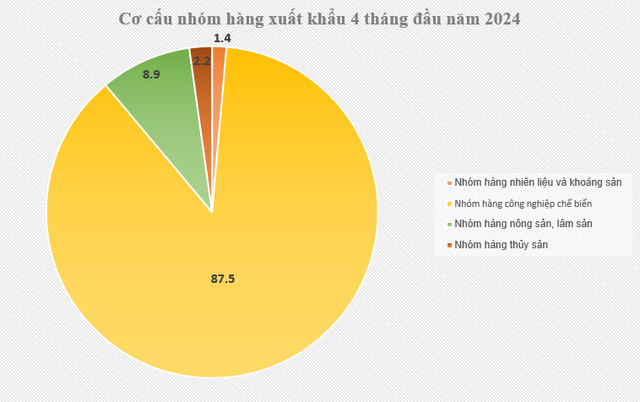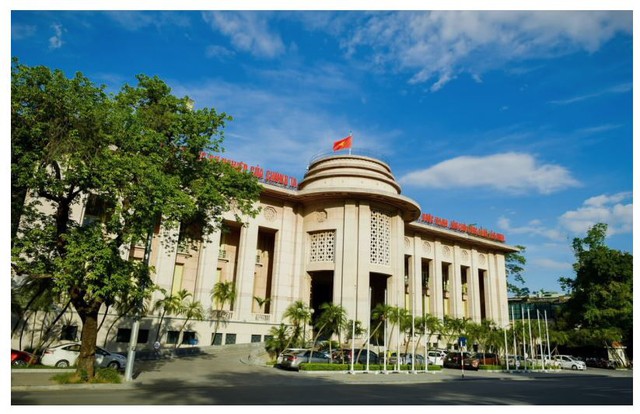This morning, on March 14th, at the 31st session, the Standing Committee of the National Assembly gave opinions on the explanation, reception, and amendment of the draft Law on the Capital (amended). This is an important law project for the development of the Capital as well as the overall development of the country.
STRONG DECENTRALIZATION AND EMPOWERMENT FOR HANOI CAPITAL
At the session, Chairman of the Law Committee of the National Assembly Hoang Thanh Tung presented a summary report on some major issues explained, received, and adjusted in the draft Law on the Capital (amended).
According to Mr. Tung, based on research and reference to the provisions of some laws and Resolution No. 98/2023/QH15 of the National Assembly, the draft Law has added two new contents in the principle of applying laws towards: clearly defining in the case of laws and resolutions of the National Assembly issued after the effective date of the Law on the Capital having different provisions from the Law on the Capital on the same issue and the implementation process of applying this provision will be more convenient for the construction, development, management, and protection of the Capital. However, if the application of that law or resolution is not specifically stipulated in the law or resolution, the Standing Committee of the National Assembly will decide to apply it upon the recommendation of the Government (paragraph 3).
Regarding the organization of urban authorities (Chapter II), the Chairman of the Law Committee stated that based on the opinions of the National Assembly deputies, the Standing Committee of the Law Committee and the unified agencies, adjustments were made to the provisions on the model of organizing urban authorities in Hanoi city; the organizational structure, duties, and powers of the Hanoi City People’s Council and People’s Committee, districts, towns, cities under the City, and commune People’s Committees.
Adjustments to the organization and apparatus content demonstrate strong decentralization and empowerment for Hanoi city, helping the City’s government to be more proactive in organizing the apparatus, staffing to be able to effectively perform the special role and task of being the capital of the Socialist Republic of Vietnam.
In particular, the draft law empowers the Hanoi City People’s Council to determine the criteria for establishment and decide on the establishment, reorganization, dissolution of specialized agencies, and other administrative organizations under the City People’s Committee (not limited by the regulations of the Government, the Prime Minister and the guidance of the Ministry, the equivalent of the Ministry on related matters but must ensure compliance with the requirements of the objectives, tasks of state governance, the objectives of administrative reform, and not overlap functions, tasks, and powers) (clause 4, Article 9).
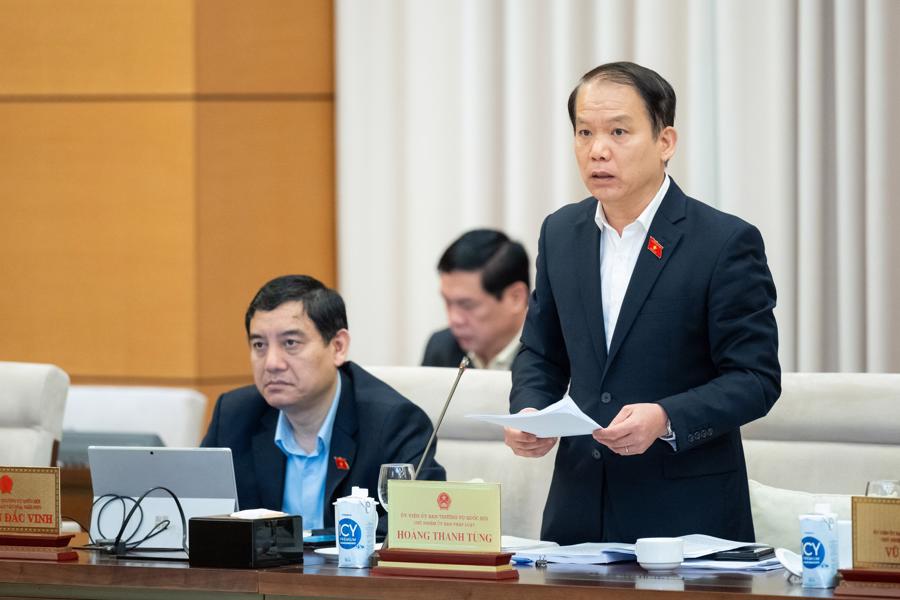
In addition, the draft law also stipulates that the Standing City People’s Council has a maximum of 11 members (the draft Law submitted to the National Assembly stipulates no more than 9 members), the specific number of members is determined by the City People’s Council (clause 2, Article 9).
The draft law directly empowers the Standing City People’s Council to decide and report to the City People’s Council on some urgent issues to ensure timeliness and meet practical requirements (clause 5, Article 9).
The draft law strengthens the organization and apparatus for the District People’s Councils, towns, cities under the City in the direction that the People’s Councils in these administrative units have 2 Deputy Chairpersons, no more than 9 members, operate on a specialized basis, and can be established no more than 3 committees; Committees may have members working on a specialized basis (clause 1 and clause 2, Article 11).
In terms of the delegation of powers to Hanoi city in construction, development, management, and protection of the Capital, the Chairman of the Law Committee stated that compared to the draft Law submitted to the National Assembly at the 6th session, the draft Law has been further improved towards stronger decentralization and clearly defining the scope and responsibilities of the Hanoi City government in some areas.
Specifically, the draft law empowers the City People’s Council to stipulate in detail the procedures for adjusting local general urban planning, functional district planning, specialized technical infrastructure planning of the City (clause 3, Article 17), Resolutions of the National Assembly on the pilot mechanisms, specific policies assigned to the Prime Minister to stipulate in detail.
The draft law empowers the City People’s Committee to approve construction projects on river banks, floating islands on river routes with embankments in the area of the City, ensuring the conditions prescribed by the law on embankments (clause 6, Article 18), Law on Embankments assigned to the Prime Minister to decide.
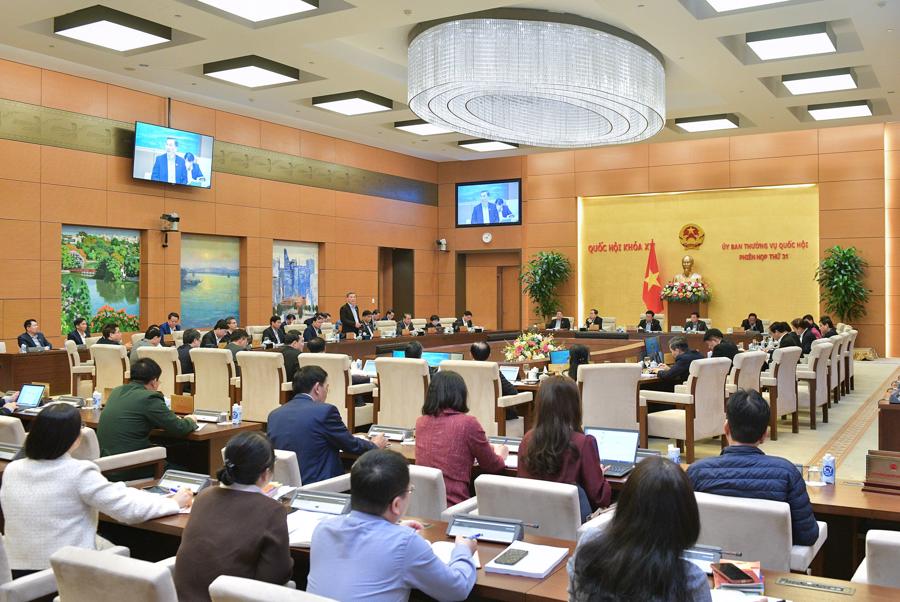
In addition, the draft law delegates authority to the specialized agency on tourism under the City People’s Committee to license international travel business services; appraise, recognize, announce, inspect, recover decisions on recognizing, changing the rating of 4-star, 5-star tourist accommodation establishments (clause 7, Article 21), Law on Tourism assigned to the National Tourism Administration to exercise this authority.
Empowering the City People’s Committee to decide on the establishment, expansion of high-tech zones, promulgate the operation regulations of high-tech zones established by the City People’s Committee (point a, clause 1, Article 24).
The draft law also delegates authority to the specialized agency on health under the City People’s Committee to appraise, allow health examination and treatment establishments within the management scope of the City People’s Committee to apply new techniques, new methods in health examination, and treatment that have been permitted to apply in foreign countries by competent authorities (clause 5, Article 26), Law on Health Examination and Treatment assigned to the Ministry of Health.
Regarding some opinions to the Standing Committee of the National Assembly, the Chairman of the Law Committee proposed that the Standing Committee of the National Assembly consider, provide directions, and give guidance on some issues such as staffing, additional income; specifically determining the limitations of underground space used by land users; developing the city according to public transportation; implementing construction contracts – transfer; delegating power to the Management Board of high-tech zones to deal with land transfer, land lease within the high-tech zones.
LAW MUST SOLVE PRESSING ISSUES
Speaking at the session, Chairman of the National Assembly Vuong Dinh Hue stated that the draft Law on the Capital (amended) submitted to the Standing Committee of the National Assembly this time is fundamentally in line with political grounds, legal basis, and practical foundation in the construction and development of the Capital, as well as the system of major Party policies, Resolution No. 15-NQ/TW dated May 5, 2022 of the Party Central Committee on the orientation and development tasks of Hanoi Capital until 2030, vision to 2045…
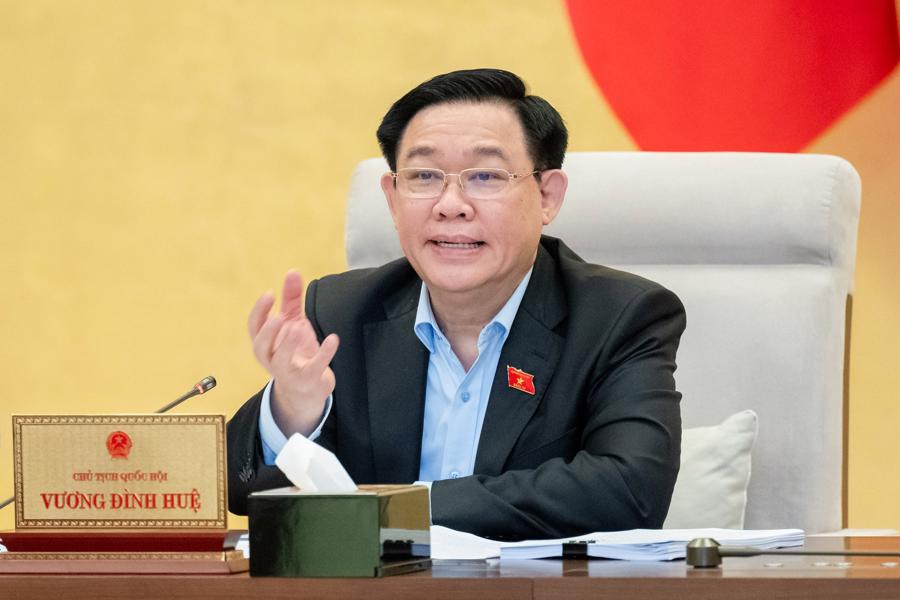
According to Chairman Vuong Dinh Hue, the contents of the draft Law have basically achieved unanimity and coherence in terms of viewpoints, thoughts, and visions among agencies. If the current Law on the Capital is predominantly a framework, this draft Law has entered into very specific contents related to decentralization and empowerment.
Regarding the opinions, Chairman Vuong Dinh Hue suggested that in principle, in the application of laws, the draft Law has been further modified. However, it still needs to be reviewed, researched, edited, and more closely demonstrated, ensuring the consistency in the legal system…
“Environmental pollution, especially air pollution, traffic congestion, waste treatment, and flooding… are pressing issues of the Capital. Therefore, this draft Law needs to be studied and reviewed to have appropriate provisions on decentralization, empowerment, the authorization to exploit resources, and flexible delegation powers… to enable the Capital to address these issues,” emphasized the Chairman of the National Assembly.
In addition, regarding measures and solutions to attract and mobilize resources, promote innovation and creativity in the construction, development, management, and protection of the Capital, Chairman Vuong Dinh Hue believed that it is necessary to review and clarify, ensuring the institutionalization of Resolution No. 19 of the Central Committee as well. At the same time, consider using the term “startup” companies.
Regarding the content related to regional linkages, the draft Law has removed the concept of the “Capital Region”. Chairman Vuong Dinh Hue made it clear that this provision is new. However, this is an important issue related to the Planning Law and the Construction Law, so the drafting agency needs to fully explain, persuade, and scientifically clarify it before the National Assembly…
In addition, participating in opinions at the session, Chairman of the Science, Technology, and Environment Committee Le Quang Huy stated that to specifically determine the limitation of the use of underground space by land users, it is necessary to stipulate immediately in the Land Law that land users can use the underground according to the vertical direction within 15 meters from the ground into the ground.
“Beyond this depth limit, land users can still use it if it is consistent with the planning but must obtain permission from the competent state agency and pay according to the regulations of the Government. Determining the depth limit of 15 meters is based on the scope of functional zoning determined in the General Plan for underground construction in the central urban area – Hanoi city until 2030, vision to 2050,” Mr. Huy said.
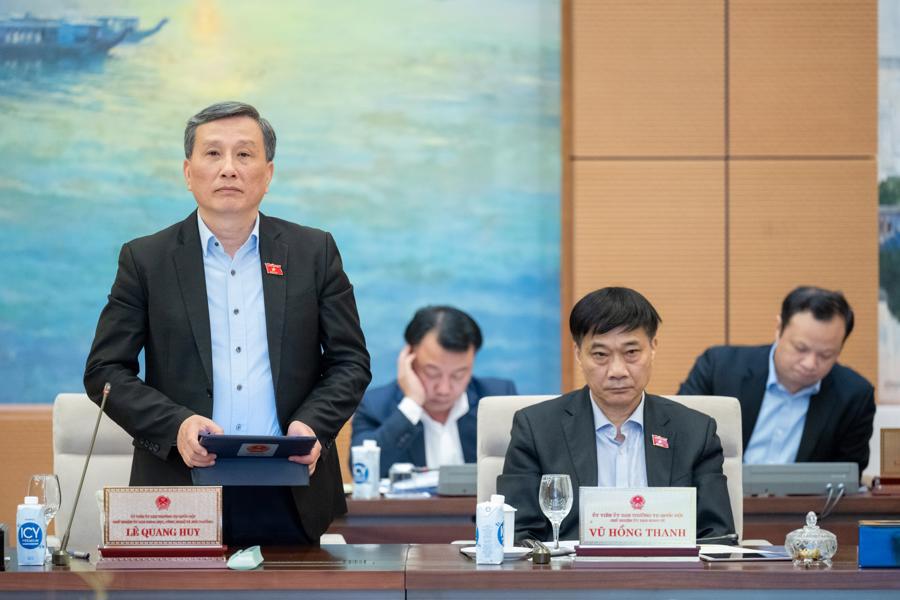
According to the Chairman of the Science, Technology, and Environment Committee, this option will create a legal basis for Hanoi city to proactively manage, exploit, use the underground space effectively, clearly define the limit of underground space used by land users, disclose the rights and responsibilities of land users, create favorable conditions for exploiting added value from land and implementing the construction of urban railways.
Regarding the delegation of powers to the Management Board of the high-tech zone in the transfer of land, land leasing within the high-tech zone, the Chairman of the Science, Technology, and Environment Committee believed that the provision in the draft Law stipulating that the Management Board of the high-tech zone has the authority to transfer land, lease land within the high-tech zone is necessary and in line with the management capacity of the Board as an administrative agency under the City People’s Committee, ensuring uniform state management in the area, helping to simplify administrative procedures, create favorable conditions for effectively exploiting land fund in high-tech zones in Hanoi city to bring practical value and efficient implementation.
The draft Law on the Capital (amended) will be voted on by the National Assembly during the 7th session.
The 31st session of the Standing Committee of the National Assembly takes place over 3.5 days, from March 14th to 19th. According to the session program, on legislative work, the Standing Committee of the National Assembly gives opinions on the explanation, reception of 7 draft laws before requesting the opinions of the National Assembly deputies at the working session of the National Assembly specialized activity, then submitting for opinions at the 7th session of the National Assembly.
The draft laws include: the draft Law on the Capital (amended); the draft Law amending and supplementing some articles of the Auction Law; the draft Law on the Organization of the People’s Court (amended); the draft Law on Roads; the draft Law on Traffic Order and Safety; the draft Law on Defense Industry, Security, and Mobilization of Industry; the draft Law on Social Insurance (amended).
Regarding supervisory work, the Standing Committee of the National Assembly will: consider the report on people’s volunteering work of the National Assembly in February 2024; organize questioning activities and answer questions from National Assembly deputies.
The session will also consider and decide on the establishment of An Dien and An Tay wards under Ben Cat town and the establishment of Ben Cat city under Binh Duong province; and establish and arrange wards under Go Cong town and establish Go Cong city, Tien Giang province.
During the session, the Standing Committee of the National Assembly will also consider personnel work.










